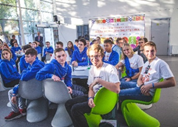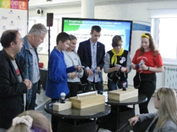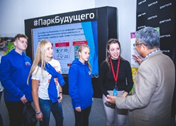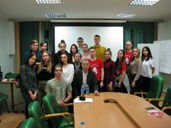Implementation of energy conservation courses at the Smena All-Russian National Children’s Center and Okean All-Russian National Children’s Center
<Dispatch of experts>
The Energy Conservation Center, Japan (ECCJ) dispatched two experts each to the Smena All-Russian National Children’s Center located in the Krasnodar Krai during the two-day period between October 22 and 23, 2019, and to the Okean All-Russian National Children’s Center located in the Primorsky Krai during the three-day period between November 25 and 27, 2019. At each location, the experts gave lectures relating to energy conservation targeting junior and senior high school students.
 |
 |
|
View of training held in the Smena Center |
View of training held in the Okean Center |
 |
 |
|
Conversations with students in the Smena Center |
Conversations with students in the Okean Center |
At the Japan-Russia Summit Meeting held in December 2016, it was determined that a “Year of Japan in Russia” and a “Year of Russia in Japan” would be held in 2018 as one measure to be taken to expand personal exchanges between the two countries. As part of these activities, ECCJ visited three of the four All-Russian National Children’s Centers.
The activities were continued in the current fiscal year, and following a request received from the Ministry of Energy together with the Education and Science Ministry of the Russian Federation it was decided to conduct an energy conservation course while introducing Japanese culture to Russian youths at two of the four All-Russian National Children’s Center locations. ECCJ was placed in charge of implementing these activities.
Various programs are prepared for young people at the National Children’s Centers. As well as being places of learning, the Centers are facilities intended for the purpose of developing their leadership, creativity, and physical possibilities.
In the course developed by ECCJ, explanations were given over a period of approximately two hours using quizzes and experiments regarding the importance of energy and the significance of energy conservation. Concerning energy conversion and effective energy use, great care was taken to make the explanations as easy as possible for the students to understand while giving examples of household electrical appliances including heat pumps and LEDs.
In addition to participating enthusiastically in the experiments, the students asked questions relating to the directions that energy will take in the future and concerning energy conservation.
The implementation of these activities helped to develop mutual interchanges between Japan and Russia through energy conservation.

